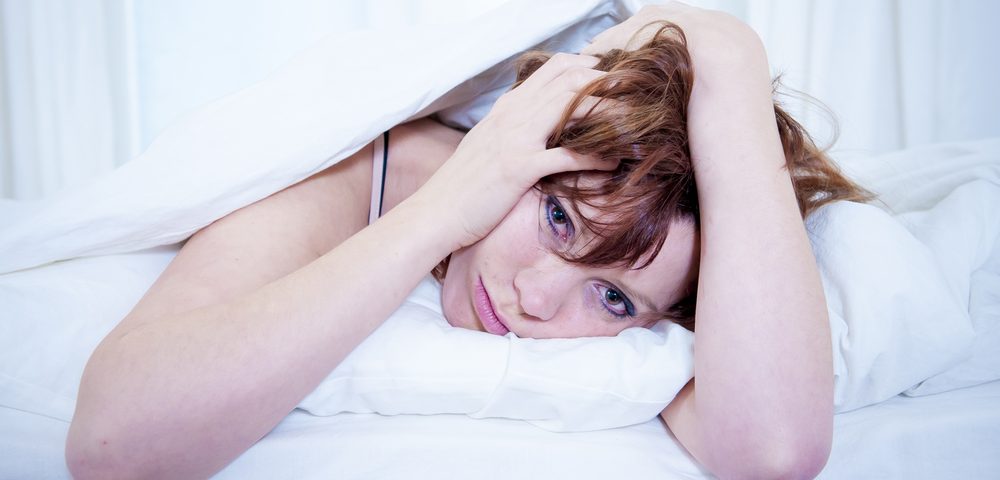Sleep can be elusive to a lot of folks, but when you have chronic pain and/or fibromyalgia, it can be especially difficult. Not only can it make you crabby, but not getting enough sleep can cause serious health issues and/or make your symptoms worse.
Sleeping when you are in pain isn’t easy. And if you can fall asleep, it isn’t for very long. How do you get comfortable when you hurt everywhere? For some, the answer is prescription drugs. For others, either medications don’t work or they would rather rely on natural methods.
I had no idea how little sleep I was getting until I bought a fitness device. Besides counting steps, it also tracks sleep. Mine shows how long I slept, how many times I was awake and how many times I was restless. I know it isn’t the most accurate way to tell how much quality sleep you are getting, but at least gives you an idea. The first night I wore it, I supposedly slept all of 80 minutes. I’m pretty sure I slept more than that, but I could tell by the black circles under my eyes and the feeling of total exhaustion that I didn’t get much sleep at all. My goal has been to gradually increase the amount of sleep I get. I’m up to five to six hours a night, awake two or three times, and restless 20 or more times per night. This has been a good tool to track my progress.
Besides trying to be as natural as possible, I still need to take medication to help with my pain, which then helps me to sleep better. The problem with some medications is that you build up a tolerance and you need to take more and more to get the desired effect. I worry that I will become dependent on the medication but, because of the recent developments with the Centers for Disease Control and Prevention calling for doctors to avoid prescribing opioids for chronic pain, the natural route may be the only option we have.
Some doctors recommend to relax one hour before bed. Whether you read, take an Epsom salt bath, chill out with your pet or have a light snack and some warm milk, relaxing before bed can be very beneficial. It is easier said than done, but there are a lot of things you can try to help calm down before hitting the sack. If you haven’t tried coloring, what are you waiting for? There is a legitimate reason it’s all the rage.
To aid in falling asleep, try white noise or relaxing music. My husband is a firm believer in having a fan on, while I prefer music. I listen to the same playlist my massage therapist uses when she works her magic on my poor, sore body. Just listening to the same music makes me feel like I’m right back on the massage table. I’m usually snoring by the third or fourth track. Check out playlists on your music app of choice. I searched relaxing music and found quite a few preset playlists to choose from.
For some, yoga has been a helpful tool to relax. Some light stretching can help soothe your muscles and make it easier to fall asleep. Mindfulness and meditation are other options that can be very beneficial. Clearing your head of thoughts about work, relationships and stuff you need to do often is very challenging, to say the least. Some people find that having a note pad and pen by the bed is helpful. Being able to write down whatever is on your mind might help you nod off. Get it out of your head so you can get to the task at hand — a good night’s rest.
Best of luck, and sweet dreams!
Note: Fibromyalgia News Today is strictly a news and information website about the disease. It does not provide medical advice, diagnosis, or treatment. This content is not intended to be a substitute for professional medical advice, diagnosis, or treatment. Always seek the advice of your physician or other qualified health provider with any questions you may have regarding a medical condition. Never disregard professional medical advice or delay in seeking it because of something you have read on this website. The opinions expressed in this column are not those of Fibromyalgia News Today, or its parent company, BioNews Services, and are intended to spark discussion about issues pertaining to fibromyalgia.


I would love to know how much sleep I actually get. What kind of device can tell you that?
Hi Nan, I have a Fitbit Flex but I’m sure there are other trackers that do the same thing.
I think it’s the quality of restorative sleep that is important.
I would imagine you would know that when you wake in the morning.
I often wake during the night too. ?
Don’t think a Fitbit for me would be helpful.
Even though I knew I wasn’t getting enough quality sleep, I had no idea how little rest I actually was getting. Buying a Fitbit was a life changer for me. It got me motivated to increase my sleep and decrease the number of times I wake up during the night. I didn’t really make an effort before that. I just kept doing the same thing, which obviously wasn’t working. Just because it worked for me, doesn’t mean it will work for others.